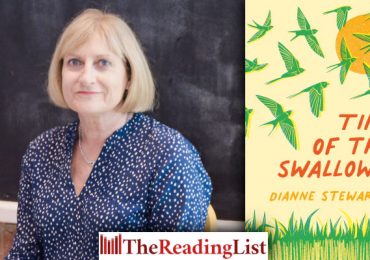Penguin Random House has shared an excerpt from Wayfarers’ Hymns, the highly anticipated new novel from Zakes Mda.
Mda is the author of the novels Ways of Dying and The Heart of Redness, among many others. He was born in the Eastern Cape, but spent his early childhood in Soweto, finishing his school education in Lesotho.
He is a prolific writer of novels, plays, poems and articles for academic journals and newspapers, and his writing has been translated into 20 languages. His creative work also includes painting, and theatre and film productions. Mda, whose forebears were exiled from Qumbu to Lesotho after the assassination of Hamilton Hope, is a recipient of South Africa’s Order of Ikhamanga. He is based in Athens, Ohio, where he spends his time writing and teaching.
Infused with rhythm and melody, Wayfarers’ Hymns invites you to travel from Lesotho’s Mountain Kingdom to the City of Gold through the history of famo.
‘This book reads like a song.’ – Annicia Manyaapelo
In a recent episode of The Penguin Post, Mda chatted about the novel, his years living in Lesotho and stories that demand to be told. Read his thoughts here.
Read the excerpt:
~~~
The death of Famole
The birth of Boy-child
She was the one I sang my hymns to, Moliehi, child of my mother. Though she was not there to hear them with her own ears, they told her when they returned from the mines of Welkom, Rustenburg and Johannesburg that hey, Moliehi, your name is famous among travellers and their lovers. Your name and your beauty. Drunken men and women perform to your name at famo parties. They dance the focho dance to your poppy-seed beauty. They make love to it. The accordion goes maniacal when the kheleke – the eloquent one, the one who can compose verse at the bat of an eyelid – describes you against the background of the valleys and the rivers and the fountains and the hills and the deep dongas that cut ruthlessly through the land, leaving it wounded and bleeding.
She only smiled shyly when she heard these stories and carried on with her life as if the fame meant nothing to her. As if it was about someone else. As if she was just an ordinary village girl whose brother was not a revered kheleke.
That is what a sister means to any boy-child who is a singer of hymns. Lifela tsa litsamaea-naha; lifela tsa liparola-thota. The hymns of those who traverse the land; those who roam the valleys. Woe unto a kheleke who has no sister, for the best he can do is sing about his paternal aunt, his rakhali, unless there is another formidable woman in his life. Provided it is not his wife. No self-respecting kheleke sings the praises of his wife in public, lest he invite vultures to his homestead while he rambles the land to the rhythm of the accordion and drums. But a sister, yes.
A great hymn begins with the kheleke introducing himself to the world, repeating his name and his father’s, against his father’s if his father was a reprobate as men tend to be, and praising the virtues of his clan, his village and his chief. The lie of the land and its overwhelming beauty are never left out, even when the hymn is a lamentation. Even when the land is barren. There is beauty in starkness. And then the sister. A kheleke dwells on his sister and her unsurpassed qualities of womanhood. Especially if she does not stand any rubbish from any man. Like Moliehi. I, boy-child, often add in mock lamentation, Oh, Moliehi, lioness of the Bataung clan, the dark one from my mother’s womb, Mmantšo, unlike most of her clan who are descendants of Barwa and are therefore yellow-coloured, how will I ever get cattle through you when you’re so full of shit?
She was the one whose beauty I sang about. Moliehi, khaitseli ea motho. And then she was lying there with a gaping wound on her head.
They could have killed her, said the male officer. And then he added after a pause, If they wanted to.
They obviously wanted you to see her like this, said the female officer. In pain. Not dead, but almost. Perhaps they wanted her to die in your arms so that you feel the pain more acutely.
Twisting the knife in my heart while her wound was pulsating as if she was breathing through it. If there was the slightest breath, whether through the nostrils, the mouth or the gaping wound, there was hope of life.
They had no name. The officers obviously knew who they were. The officers knew their methods too. They killed when they wanted to. Or they just gave you a few whacks with a panga and left you at death’s door so that your kin could learn a lesson. Stop your shit once and for all, that’s what they were saying, or the subject of your hymns – the object of your love, khaitseli ea motho, she whose name you repeated over and over, invoking protective female spirits as you rambled over hills and hillocks even from the days the concertina was your instrument instead of the accordion – will die for real next time.
We’ll do our best, said the doctor.
Reassurance was proffered by Toloki, the Professional Mourner, the votary I first met during the days of the concertina.
Be joyful, boy-child, he said, or at least be relieved. I do not mourn the living. Only the dead.
*
The concertina keened across the gorges and was echoed by boulders on the hills and cliffs on the mountains. Even the rock rabbits stirred, and women gathering firewood in the bush stopped their gossip and paid attention to the song undulating from the bellows. They must have muttered, there he goes, the boy-child whose body will end up being food for the vultures, Moliehi’s brother, there he goes, giving himself to the land.
Usually, giving myself to the land meant rambling, without any specific destination, heading where the wind blew me, until the smell of fermented sorghum stopped me in my tracks and led me to a place of abandon where buxom women performed focho, the dance that young South Africans have appropriated and call vosho. This time it is different. The road has a destination. It leads to Matelile Ha Sekhaupane. To pay my last respects to Famole, the greatest singer of hymns that ever lived.
Opinions will differ, of course, as they differ on everything else in life, but I have long worshipped at the altar of Famole. He was the greatest both in making the accordion moan with pleasure as his fingers tickled it and in the manner that he selected his words so that they went straight to your heart. Famole, in my opinion, was more talented than all hymn singers, including his own mentor, Mantša Mohale. But I am only allowed to whisper this out of earshot of some people in our villages of Matelile, Likhoele and Thabana Morena, which are pulsating with rival musicians, or even in our whole district of Mafeteng that is populated by followers who take such matters personally. Giving such praise to a singer of hymns can be a death sentence if the listeners are supporters of a different musician. I still want to live.
They say Famole prophesied his own death. The last CD he released contained a lamentation titled ‘Lebitla le Nkemetse’ – the grave is waiting for me – that followers (they prefer to be called followers – balateli – rather than fans) played over and over again because it spoke so directly of his final journey. After a searing accordion and drums that throb with the heartbeat, his voice – in a phefa tone, as Basotho would say when they describe the clarity and mellifluousness of a voice – creeps in and repeats that the grave awaits him, awaits him, awaits him. Jo nna oeee! He proceeds to sing that he knows for sure that the grave is waiting for him. Then he gets to the hymn part of the song where he recites poetry in that modulated space that exists between talking and singing. The sing-song voice of an accomplished kheleke backed by a demented accordion. He tells us that everyone is born already with the number of his grave. But no one knows his or her number except Father God. He tells his followers they should not be angry or sad, for they are going to meet him in heaven. His final wish is that his old-time mentor, Mantša Mohale, should be the speaker who passes condolences at his funeral.
Jo nna oeee, these songs talk! Maybe that’s why their poetry is called lifela – hymns. Nothing to do with church hymns, though. These are secular hymns that suppliants dance to. Most of the hymns, even from their origins, never had anything to do with religion. Famole’s swansong of course had a touch of religion because it was about his impending death.
And people spoke at that funeral, each trying to outdo the one who spoke before. Basotho are a speaking people; they value the music that words strung together with care and love can produce and are competitive in the originality of their metaphors. People spoke, some calling him by his birth name, Teboho Lesia, to show that they knew him long before he was Famole, when he was still a herdboy looking after his father’s cattle, when his mother was an ardent believer of the Anglican Church, and how that instilled the love of Christianity in him. And, of course, his apprenticeship to the mentor of many musicians, Mantša Mohale.
The mentor was really the person I was waiting to hear as I stood at the margins of the funeral crowd, my concertina hidden under my donkey blanket, so named because of its grey colour. I observed people in different coloured blankets. People were obviously not afraid to wear their colours because of the strong presence of the police and the military. The police from the nearby Ha Seeiso Police Station had been reinforced by those from the district headquarters of Mafeteng, and by a few officers from the Lesotho Defence Force. The pretext was that law enforcement was here because of the heavy presence of government officials and political leaders. To look after their safety. But everyone knew that the main reason was to quell any fight that might arise from rival groups. A cynic might say even to take sides, as people have always said politicians and their minions are not neutral in this war of the musicians.
~~~
- Source: Penguin Random House





